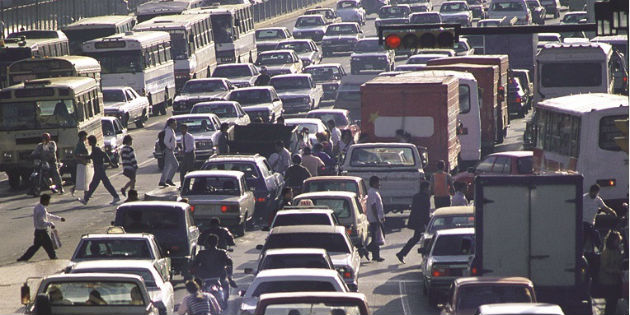The levels and effects of traffic noise: a study in Mumbai, India
Noise
The Hindustan Times, Mumbai, recently reported on a study by the Indian Institute of Technology – Bombay (IIT-B) which found that commuters in the city are subjected to noise levels of more than 90 decibels (dB).

The main reason for the high levels of noise is indiscriminate use of vehicle horns. According to the article, a 25-km journey at peak times exposes the commuter to noise levels equivalent to those made by a food processor kept on for around two hours continuously.
According to Indian law, recommended noise levels during the day for a vehicle are 75 dB in industrial areas, 65 dB in commercial areas, 55 dB in residential areas, and 50 dB in silence zones. Routinely measured levels for commuters and drivers are well above this threshold, based on the study results.
“Commuting is a daily activity in Mumbai, higher than any other city in the country, as a result of which commuters are bound to be exposed to excessive noise during travel,” says Nagendra R Velaga, Assistant Professor at the Civil Engineering Department of the Institute. “Drivers honk for a significant part of their trip owing to the lack of a proper traffic system, inadequate law enforcement, and driver indiscipline, coupled with high traffic congestion.”
To conduct the study, the researchers chose six routes in the city and noise data were collected inside buses, cars, and autos during day-time peak travel hours. Driving a total of 112 km, the team made 22 trips in different types of vehicles equipped with GPS devices and noise-level meters. The research team also took into account noise levels related to interactions between the road surface and tyres.
The Hindustan Times



